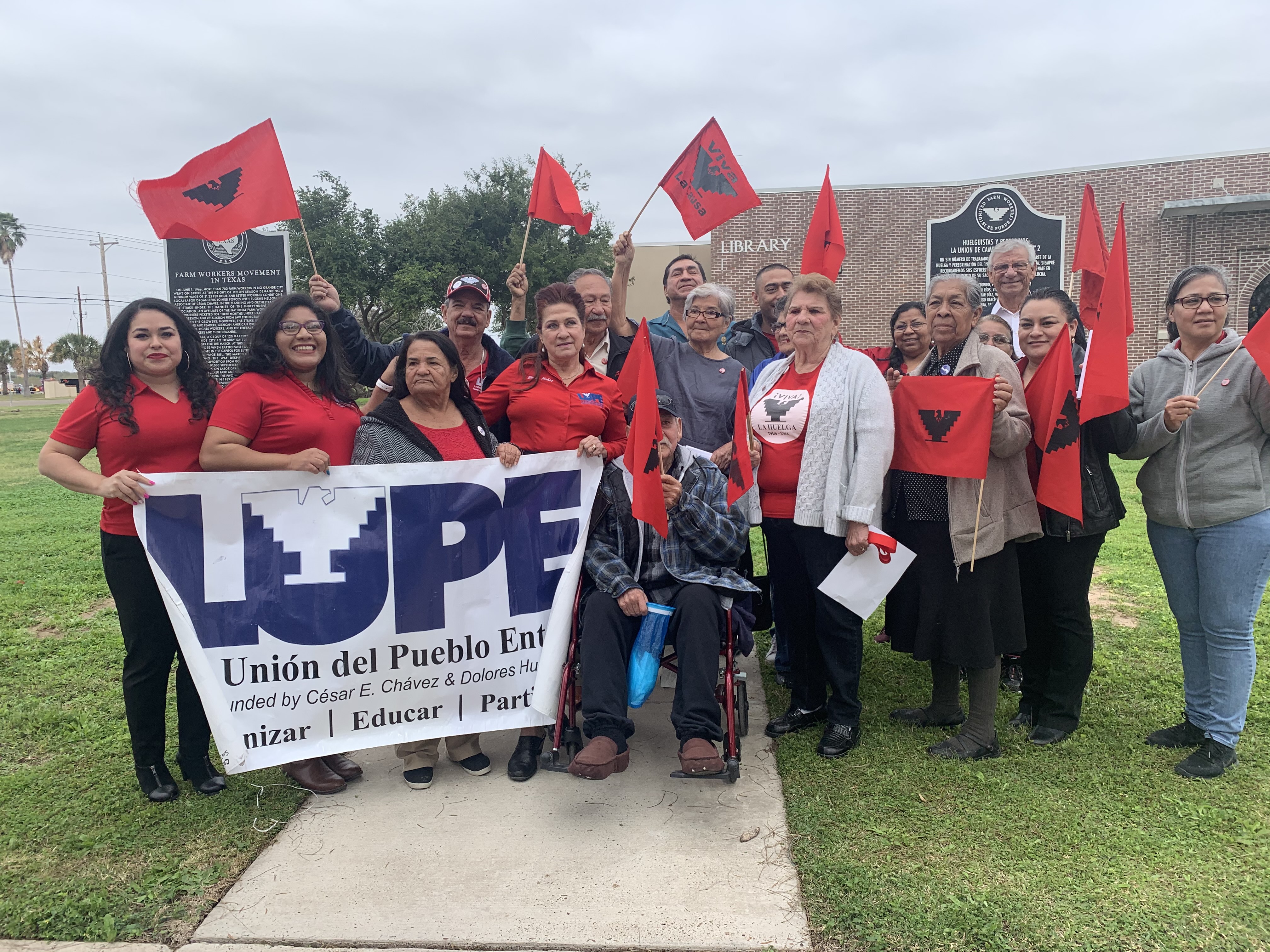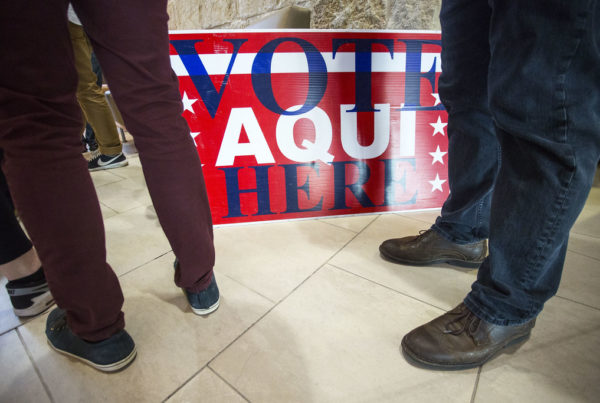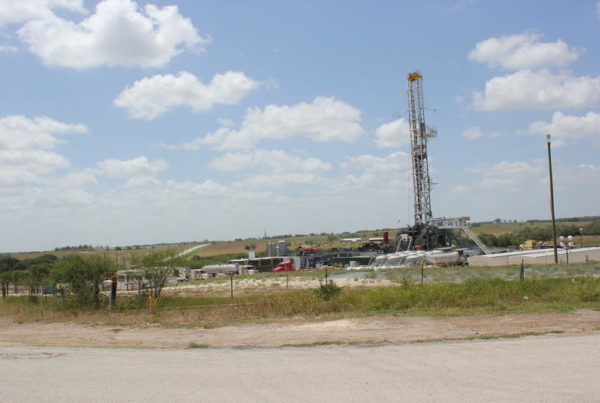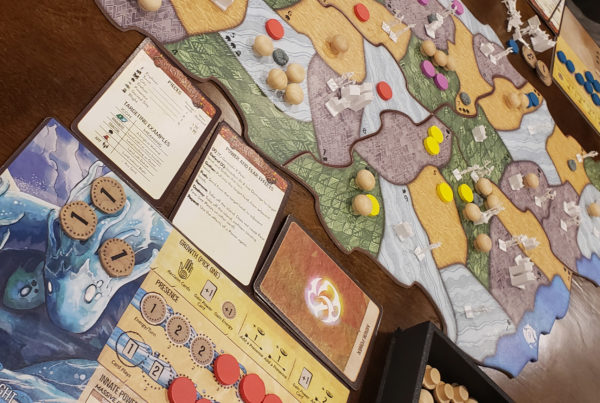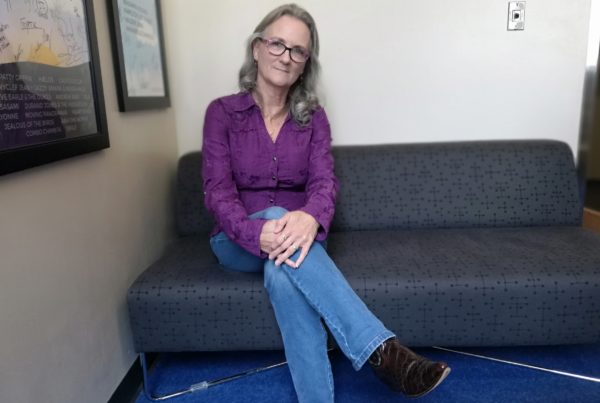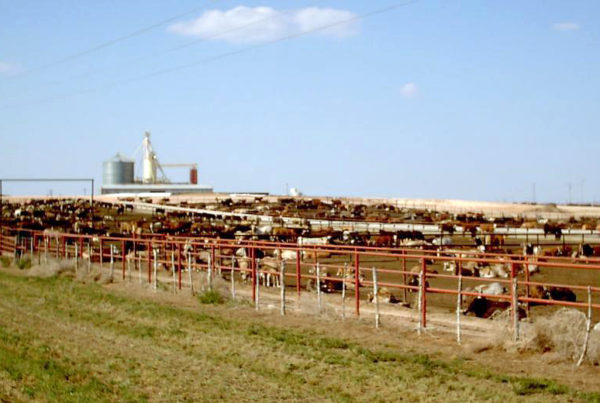More than 50 years ago, farmworkers in South Texas, fed up with deteriorating working conditions and a 40-cent-an-hour wage, went on strike. Last Friday, two historical markers commemorating the Texas farmworkers’ strike of 1966 were unveiled in Rio Grande City along the Texas-Mexico border, marking a historic event and the resulting movement.
Daria Vera is in her 70s and today she’s carrying with her a large black-and-white laminated photograph.
In the photo there are two young women lying down on a bridge with both Mexican and U.S. law enforcement officers standing around, looking down at them.
“I was 21 years old,” Vera says. “Here they had already taken the organizers and put them behind bars. I told the woman next to me, ‘this doesn’t stop here. We need to continue blocking the bridge.’ And we blocked that bridge because it got full with cars on both sides with us laying down in the middle.”
Back then, Vera and others were on the international bridge that connects Roma Texas, some 230 miles south of San Antonio, to Ciudad Aleman, Mexico, as a sign of protest and to try and hurt the ranchers financially.
At the time, she was working in the cantaloupe fields, where she and others who were picking crops, earned less than half of what was then the $1.25 an-hour minimum wage.
Today, when she looks at the photo, Vera says she’s extremely proud of the work she and others did to bring the life-threatening conditions of South Texas farm work to the nation’s attention.
“Fear is something I never had. I was always fighting,” Vera says. “I’d say if they kill us or something, I’m going to die with happiness knowing I was fighting for our rights.”
Vera and other farmworkers gathered in Rio Grande City to be honored for the work they did to advocate for better working conditions in the fields.
The ceremony began with some songs and music that had been played when the farmworkers went on strike that sticky June, during their 491-mile march to Austin, all those decades ago. At the ceremony to mark the strike, Congressman Henry Cuellar, who represents the area, began his speech by first addressing the young people in the room.
“If you want to look for your heroes, you don’t have to turn on the TV, or go far away, or travel thousands of miles, look at the folks that we have here, these are your heroes,” Cuellar said.
Cuellar’s parents were farmworkers. He said the people being celebrated in the room were part of history.
“Farmworkers did not have access to bathrooms, or medical services,” Cuellar said. “Also, wages were as low as 40 cents an hour and workers had to resort to drinking from puddles left over from the irrigation systems. In addition, children as young as 5 had to join picking to add to the family income.”
When Vera took the stage, she recalled how she started working in the fields at the age of 8 and only went to first grade because she had to help support her family. Vera also shared her story about blocking the international bridge in Roma.
“All of the police arrived for two women. I was holding onto the bridge and they couldn’t loosen my grip, then they twisted my arm and I had to let go because if not, then they would have broken it. They dragged me a good distance,” Vera said. “I told them, are you all not embarrassed that all the police of Rio Grande had to come to arrest two women? Are you scared of us?’”
After Vera and others spoke, the group headed outside for the unveiling of the two markers. The first was constructed and shown three years ago to commemorate the farmworkers’ movement. The second one includes the name of local activists, including Vera.
“So the people can know what we did because there are a lot of people who don’t know, or you talk to them and they laugh because they think it’s untrue,” Vera said. “But now they can read it and see what we did and that we made history.”
Arturo S. Rodriguez was the second president of the United Farmworkers and was also at the unveiling.
“Even though it’s taken decades to bring about this monument, or this historical marker that we now have here, it really does demonstrate that people did not forget about those who really lifted us up, those that fought so hard, made tremendous sacrifices, and it’s never too late to really honor those individuals to recognize the history that took place back in 1966,” Rodriguez said.
Rodriguez said the fight for farmworkers’ rights is far from over, but that he and others will continue to advocate.


